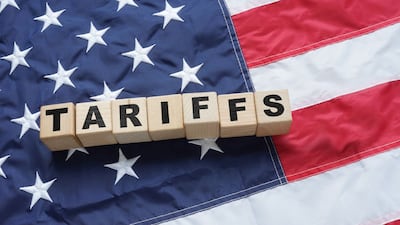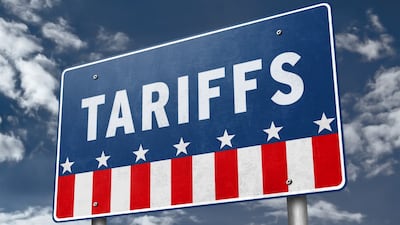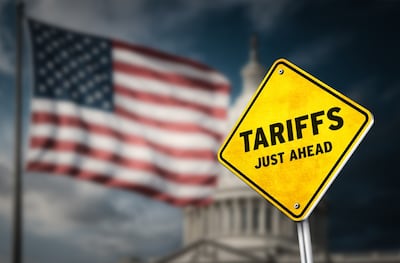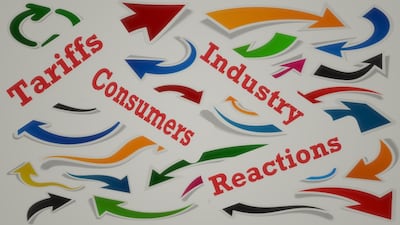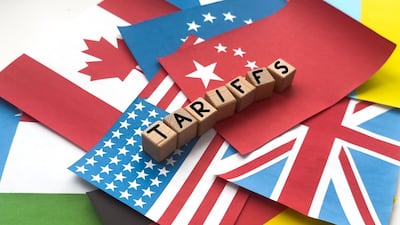ADVERTISEMENT
Tariffs
In remarks at recent investor conference reflecting comments from across the US consumer health sector, Kenvue chief Thibaut Mongon says, “I'm going to state the obvious. The environment is very fluid.”
Despite near-term cost pressures, Intuitive Surgical is expanding manufacturing and R&D in North America and Europe to meet demand for Ion, X and Xi systems.
Thermo Fisher is aggressively managing its supply chain and cost base using its Practical Process Improvement (PPI) Business System. The company is also increasing investments in US-based manufacturing and R&D, with around $2bn allocated to bolster domestic operations.
Manufacturing shifts, financial planning, and supply chain changes are among the adjustments that medtech leaders are making to Trump-era tariffs. Medtech Insight’s review of first-quarter earnings calls reveals how firms are navigating the impact and uncertainty of evolving trade policies.
Quest reaffirmed its full-year guidance despite macroeconomic concerns and tariff uncertainty. Revenues are expected between $10.7bn and $10.85bn. Adjusted earnings per share (EPS) is estimated in the $9.55 to $9.80 range for the full year, with EPS between $8.62 and $8.87.
Sun readies US debut of Leqselvi for alopecia areata, while PD-L1 inhibitor Unloxcyt is in the line up once the Checkpoint Therapeutics deal is completed. Management also discusses limited clarity on President Trump’s most favored nation pricing push, pipeline tweaks and M&A outlook.
The imaging, Varian, and advanced therapies segments – which are more reliant on equipment sales – are more heavily affected, with tariffs applying to roughly 55% of their revenue base. In diagnostics, the company expects minimal exposure due to sufficient US value-added manufacturing.
As firms in OTC drug, dietary supplement and personal care/beauty sectors reported results for January-March period after Trump announced reciprocal tariffs, they buckled up for more changes in the president’s thinking likely to affect consumer spending as well as their costs.
If US tariffs on pharmaceutical supply chain products come into force they could be disruptive for companies. Ewan Townsend, of the international law firm Arnold & Porter, explains how companies can mitigate issues through negotiating with suppliers and reallocating tariff responsibilities.
BD is accelerating transitions of product sourcing for China to avoid tariffs. Historically, products like Vacutainer were exported from Sumter, SC, to China, and Flush was shipped from Columbus, NE.
Sun readies US debut of Leqselvi for alopecia areata, while PD-L1 inhibitor Unloxcyt is in the line up once the Checkpoint Therapeutics deal is completed. Management also discusses limited clarity on President Trump’s most favored nation pricing push, pipeline tweaks and M&A outlook.
Medtronic expects operating profit to grow approximately 7% in fiscal 2026, excluding tariff impacts. If tariffs materialize at the upper end of the projected range, operating profit growth could drop by 2.2 to 3.2 percentage points.

